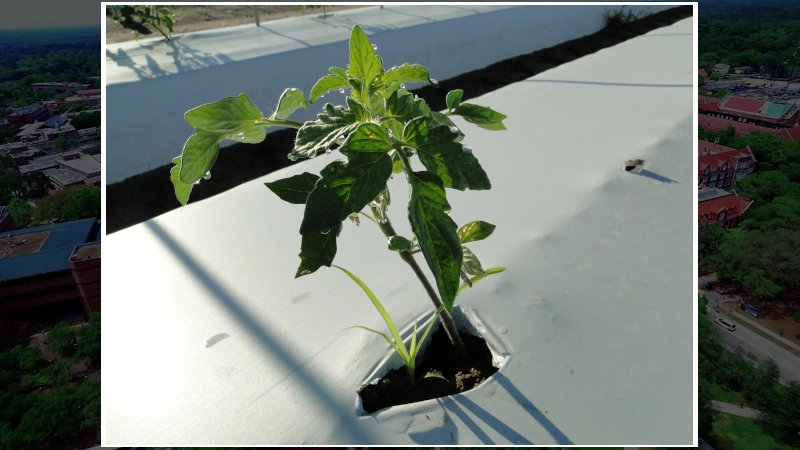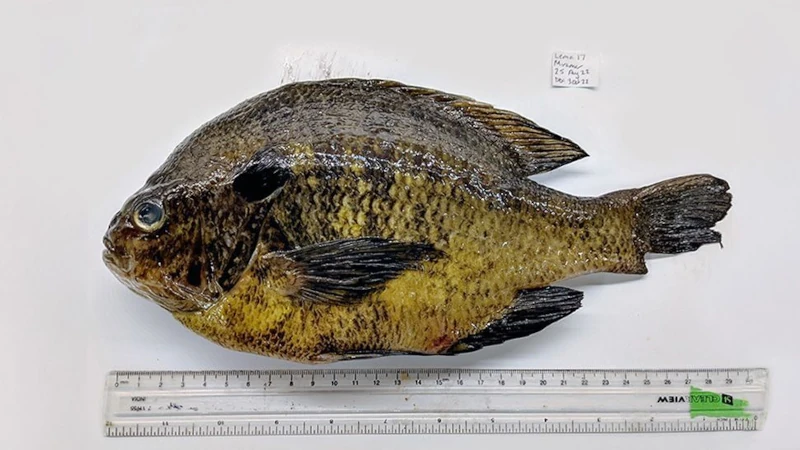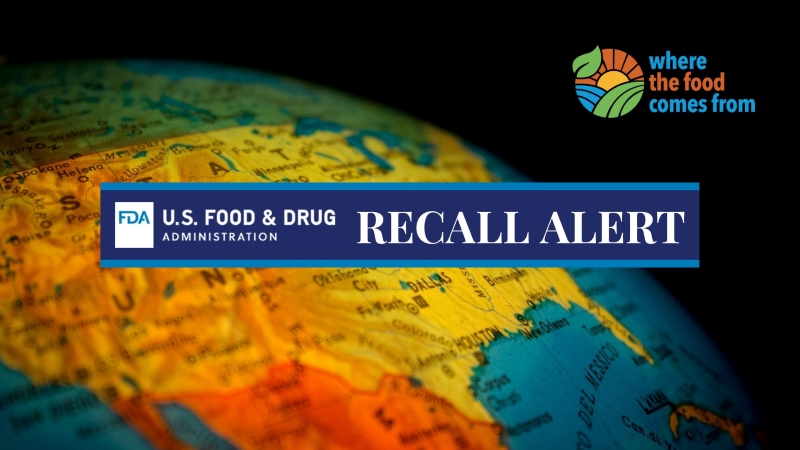Vegetable growers use herbicides to kill weeds to prevent crop loss. Meanwhile, a University of Florida researcher is using artificial intelligence to reduce herbicide sprayed on crops.
“We are building multiple AI-powered herbicide application units, each of which works in different ways,” said Nathan Boyd a UF/IFAS weed scientist and horticultural sciences professor at the Gulf Coast Research and Education Center (GCREC).
Targeted herbicide applications typically kill weeds by applying the chemicals only where the weeds grow.
But in a new study, Boyd and his colleagues developed and evaluated a precision-spraying system designed to make sure herbicide goes through the holes that scientists punch in the plastic mulch and into the soil where tomatoes are growing.
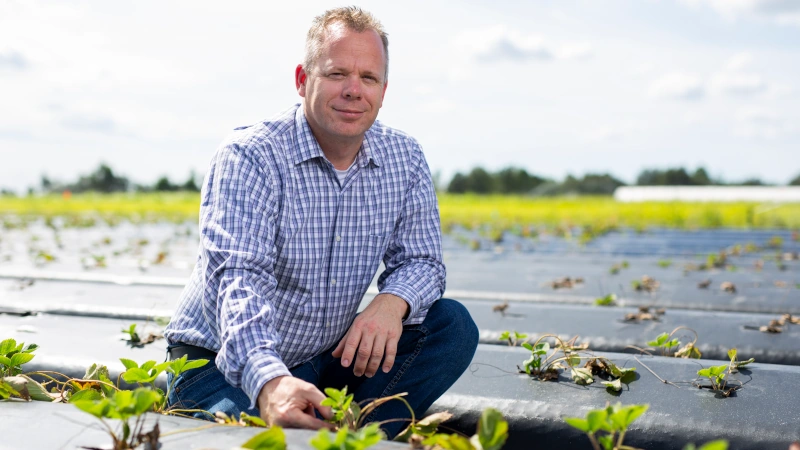
Nathan Boyd, a weed scientist and professor of horticultural sciences at the UF/IFAS Gulf Coast Research and Education Center, is shown among rows of plastic mulch at a research field at the center. Boyd and his colleagues use an AI precision sprayer to kill weeds – and not the crops near the weeds. Credit: Nathan Boyd, UF/IFAS
Using what Boyd calls an “AI smart sprayer,” researchers at the GCREC showed that the new technology found the punch holes 86% of the time, which translates to a savings of more than 90% on herbicide use in tomato fields at the research center.
“This equipment applies herbicide on the soil wherever there is a hole in the plastic, because that is the only place that weeds can emerge rather than over the entire bed top,” Boyd said.
Most farmers use plastic mulch to grow their vegetables. Plastic mulch is a sheet of plastic film that covers the soil in which crops grow.
In crops grown with plastic mulch, growers traditionally apply herbicides to the top of the entire soil bed just before the plastic is installed. But applying such chemicals over an entire bed is inefficient. Non-targeted applications increase production costs, the risk of crop damage and the amount of unnecessary pesticide in the soil.
Weeds compete with crops for essential resources such as water, nutrients, light and space. To control them, farmers use herbicides on about 90% of vegetable production in the United States.
That’s why it’s important to use herbicides properly.
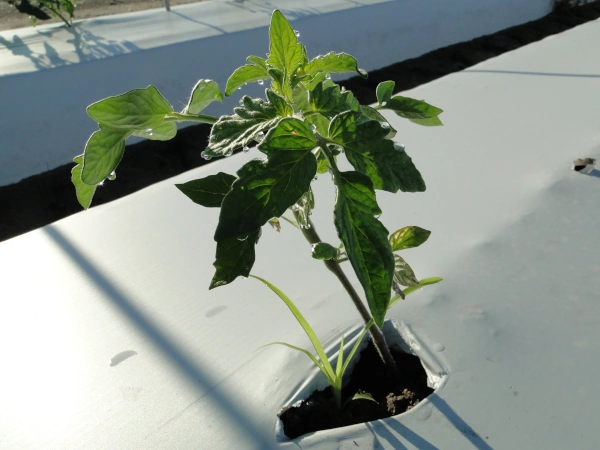
A plant grows out of the plastic mulch at the Gulf Coast. Credit: Nathan Boyd, UF/IFAS Research and Education Center
“We are only applying herbicides into holes in the plastic mulch, which means far less herbicide use. This is pretty dramatic,” Boyd said. “The purpose of our technology is to develop a way to apply herbicide only where weeds can emerge — in the planting hole — rather than the entire bed top.”
For several years, Boyd and his colleagues have been using AI to try to control weeds with pre- and post-emergence herbicides.
In 2018, Boyd and Arnold Schumann, a professor of soil, water, and ecosystem sciences at the UF/IFAS Citrus Research and Education Center, developed a precision sprayer that sends herbicide through the holes in plastic mulch.
But their machinery did not incorporate an AI algorithm for punch-hole recognition, which would make the herbicide spraying more precise, Boyd said. Now, the technology can find the punched holes with better precision.
Researchers must now get the technology onto farms, so growers can use it, and there are next steps.
“Further research is needed to assess the economic implications of herbicide reductions and evaluate the cost-effectiveness of the technology,” Boyd said.
The post AI technology uses less herbicide to kill weeds first appeared in the University of Florida Institute of Food and Agricultural Sciences’ Agriculture blog.
Written by: Brad Buck, Senior Public Relations Specialist, UF/IFAS
Brad is a senior public relations specialist for UF/IFAS Communications. A huge Gator fan, Brad grew up in Gainesville, loves movies, sports and finding great stories to tell.
The mission of the University of Florida Institute of Food and Agricultural Sciences (UF/IFAS) is to develop knowledge relevant to agricultural, human and natural resources and to make that knowledge available to sustain and enhance the quality of human life. With more than a dozen research facilities, 67 county Extension offices, and award-winning students and faculty in the UF College of Agricultural and Life Sciences, UF/IFAS brings science-based solutions to the state’s agricultural and natural resources industries, and all Florida residents.
About AI at UF
The University of Florida is making artificial intelligence the centerpiece of a major, long-term initiative that is combining world-class research infrastructure, leading-edge research and a transformational approach to curriculum. UF is committed to building the nation’s first AI University by offering artificial intelligence courses to all students in its 16 colleges through our AI Across the Curriculum program. Our faculty and students can analyze vast amounts of data that can impact our country’s biggest challenges with HiPerGator, the most powerful, university-owned supercomputer in the nation.

